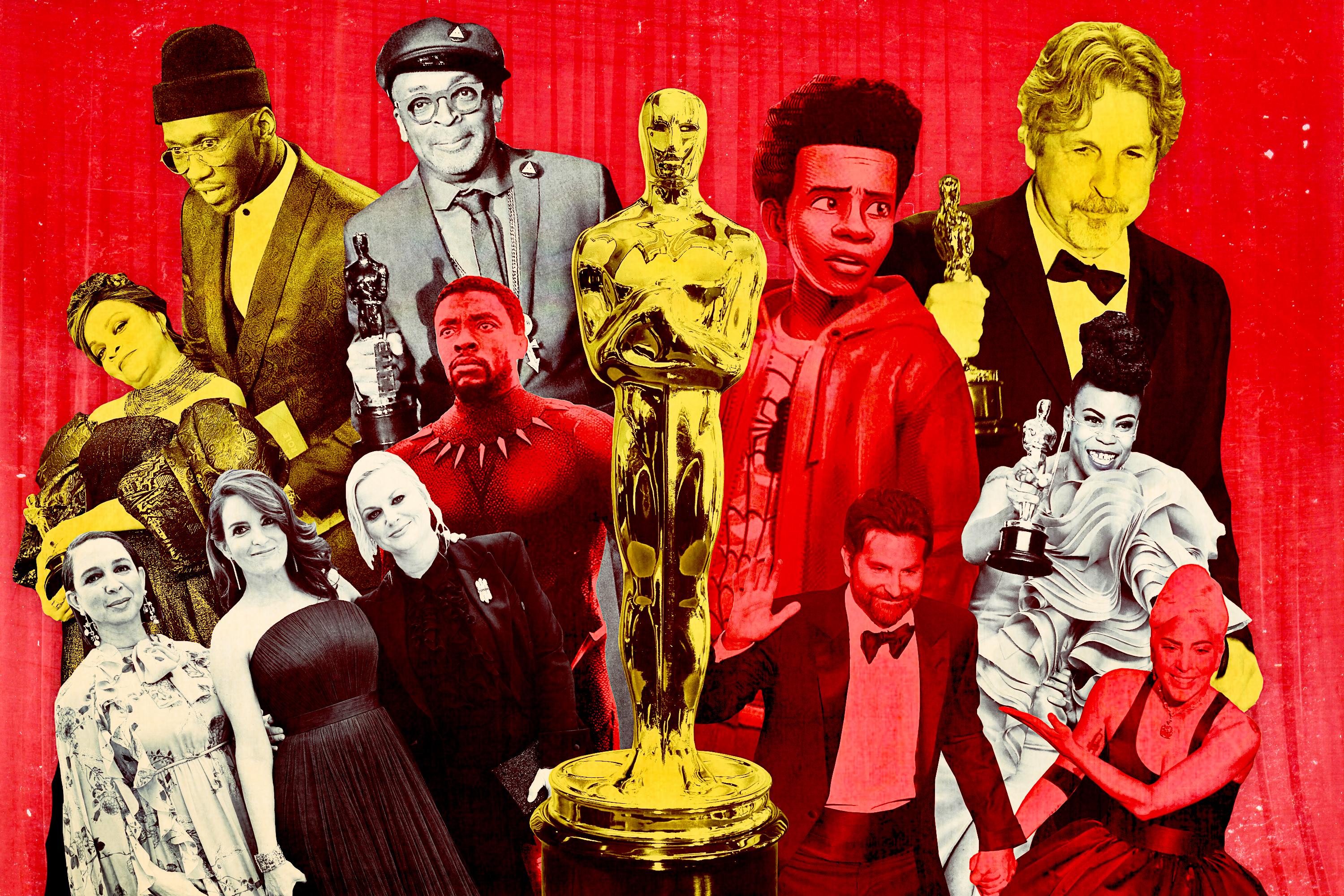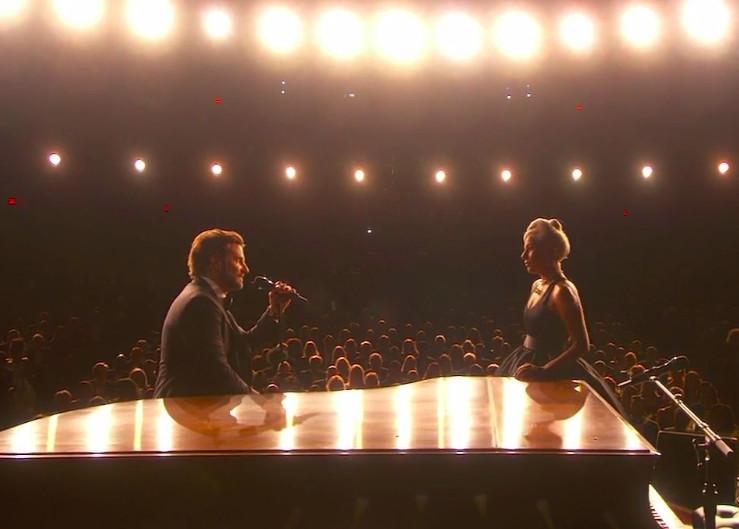
Heading into the Oscars on Sunday night, there was a weird feeling in the air. There was no host. There was little indication that the Academy knew what it was doing. And the lack of a clear front-runner in the Best Picture category—with a couple of disconcertingly acclaimed films in Green Book and Bohemian Rhapsody at the fore—left the door open for a range of outcomes, some good, some bad. So how’d it play out? Well, some good, some bad.
Winner: Perspective
—Miles Surrey
Winner(s): Amy Poehler, Tina Fey, Maya Rudolph
The Oscars haven’t been hostless in 30 years, and the last time it happened was a disaster. But without a viable last-minute alternative after the Kevin Hart fiasco, the show had to go on and … it was just fine? Unburdened by the need to deliver a monologue, Poehler, Fey, and Rudolph instead bantered for a few minutes before presenting the Best Supporting Actress award. Their innate chemistry was exactly what the Oscars’ opening minutes needed. “Just a quick update, in case you’re confused,” Rudolph opened, “there is no host tonight, no popular Oscar category, and Mexico is not paying for the wall.”
The whole three-minute bit is worth revisiting, but if you want to skip to when Poehler and Rudolph do their best Lady Gaga “Shallow” impression, it’s at the 1:55 mark.
After one of the most disastrous run-ups to the ceremony in Oscars history—one littered by public relations nightmares—this solid opening was much needed. Tapping Poehler, Fey, and Rudolph to carry the burden was an extremely good call. But even as everyone calls for this trio to host next year’s Oscars, the undeniable success of the bit raises the question of whether a host is even necessary. —MS
Winner: The Total Absence of a Host
Going into the ceremony, the Academy’s inability to book a replacement for the beleaguered Hart was viewed as an easily preventable fiasco, which, for the record, it was. But the producers may have accidentally backed themselves into a major improvement.
Perhaps the biggest question facing a hostless ceremony was how, in place of a traditional 10-minute monologue, to open the damn thing. But an Adam Lambert–fronted Queen medley kicked things off in suitably energetic fashion, followed by comedy’s Holy Trinity doing an abbreviated version of a showbiz roast. After that only slightly awkward introduction, though, the lack of a host—and along with it, many of the awkward, draggy bits that often weigh the show down—largely registered as a positive. All due respect to Ansel Elgort, but when it comes to ABC’s mission to cut down on run time, I’d rather watch sound mixers get their due than him shoot a hot dog cannon. The show’s writers still got their time in the sun; it just looks more like Melissa McCarthy decked out in bunnies while presenting an actual award.
It’s not hard to foresee a future when the Oscars permanently forego the idea of a host in the name of a brisker, cheaper undertaking. At the very least, this won’t go down as the fiasco that was the Oscars’ last hostless outing. What seemed like the show’s biggest liability became an unlikely advantage. Miraculously, setting the bar so low in the preceding months of hiring, firing, and proposed Best Popular Film categories may have paid off. —Alison Herman
Loser: The Song Performances
Some battles are worth fighting—the public outcry against shutting talented, hard-working craftspeople out of the telecast, for example. Some are not. All due respect to Lady Gaga for standing up for her fellow artists, but the performances for Best Original Song outside the two the Academy originally planned to feature didn’t make the most compelling cases for their existence. “Shallow” has a megastar; “I’ll Fight,” “The Place Where Lost Things Go,” and “When a Cowboy Trades His Spurs for Wings” do not. That’s a terrible reason for snubbing the latter group. A better justification? All three resulting in turgid, overwrought, and just plain unnecessary numbers that did as much to halt the show’s momentum as the lack of host did to speed it up. Bette Midler belting out Mary Poppins lyrics is frankly confusing; even the luminous Kacey Musgraves gracing the Dolby Theater wasn’t enough to make a cutesy ditty worth the audience’s time. Much like scrapping the host, the suggestion to condense Best Original Song to a single medley may have been a smarter idea than we initially gave it credit for. —AH
Winner (?): Eye Contact

Get you a man who—ah, you know how the saying goes. —Andrew Gruttadaro
Winner: Bradley Cooper–Lady Gaga Shippers
Ever since Jackson Maine and Ally first serenaded each other in a parking lot, the internet has convinced itself that Cooper and Gaga would make as compelling a real-life couple as they do a fictional one. Gaga’s recent breakup only fueled this fire; now, the sight of the auteur and his muse gazing into each other’s eyes on a piano bench will turn it into a supernova before you can say “Shallow.” (That Cooper regrew his beard and apparently reapplied his fake tan for the occasion certainly helped.) You might say they … just wanted to take another look at each other. May the fan art sustain Tumblr for a thousand years. —AH
Loser: That Speech
Why prepare a speech when you could do this—and by “this” I mean “fumble over words and confusedly stare for so long that people begin to question the nature of their reality”—instead? —AG
Winner: Black Panther’s Behind the Scenes
It may seem impossible for any aspect of a globally successful Marvel movie to be underexposed, but Oscar night was a victory for the less visible yet equally crucial members of the Black Panther team. Production designer Hannah Beachler literally built Wakanda from the ground up, designing everything from Shuri’s space-age lab to M’Baku’s Stone Age lair; costume designer Ruth E. Carter outfitted a fictional nation in resplendent, meticulously researched regalia. Both made history as the first African American women to win in their respective categories and contributed to a banner night for female winners in nongendered categories like Documentary Feature and Sound Editing. But they also delivered wins to a major film that was snubbed in flashier categories like acting and directing, brought attention to a lesser-known part of the filmmaking process, and, in Beachler’s case, delivered a winning speech with nothing but a dream and an iPhone. You couldn’t ask for a better case against shunting craft categories to the commercial break. —AH
Winner: Superheroes
When Spider-Man: Into the Spider-Verse was nominated for Best Animated Feature alongside Black Panther’s seven nominations, we noted that it was a turning point for superhero movies, the moment in which the genre’s ultra-commercialism collided with critical appeal. That point was only amplified Sunday night, when Black Panther took home three awards—for Best Costume Design, Best Production Design, and Best Original Score—and Spider-Verse beat out a massive Pixar movie to win Best Animated Feature.
The superhero genre is the defining genre of this era of filmmaking, and this moment has been in the works for more than a decade now. In that decade we’ve gone from Iron Man’s lair to the vast, imaginative expanse of Wakanda; from the star-filled mania of The Avengers to the social commentary and artistic excellence of Black Panther. Superhero movies contain multitudes and are far more than just silly stories about a purple alien who can wipe out civilization with the snap of his fingers. The recognition at the Oscars is just confirmation of that. —AG
Loser: The Wife
… and by extension, everyone’s Oscar ballots. Glenn Close’s long-awaited Best Actress trophy for The Wife was supposed to be one of this uniquely unpredictable awards season’s few sure things. Apart from the BAFTAs, which went for the home team, Close won nearly every predictor award there was to win. More than that, a victory would have fit neatly into a time-honored Oscar tradition of awarding cumulative honors for arguably off-peak roles—the Still Alice, if you will. Instead, Close leaves with the more dubious distinction of now being the most-nominated actress never to take home the prize. All that long-simmering feminist rage was silently communicated for naught. It’s tempting to make an “always the bridesmaid” joke, except that Close most definitely has been the bride, or rather, The Wife. —AH
Winner: This Beanie
This beanie is an Oscar-award-winning beanie, and every man who owns a Carhartt hat (I am one of them) is SO PSYCHED right now. —AG
Winner: Spike Lee
Of course a Spike Lee acceptance speech started with several seconds of profanity-induced silence. Technically, though, it started with the famously diminutive director yelling about the Knicks tanking …
… and then nearly tackling Samuel L. Jackson as he took the stage to accept an award that’s been decades in the making. Lee himself seemed to recognize his 2019 nominations were as much for his monumental—and, on the Academy’s part, criminally underrecognized—career as for BlacKkKlansman, bringing Radio Raheem’s LOVE/HATE brass knuckles onto the red carpet and ending his acknowledgements by urging the audience to “do the right thing.” After a night of heroic reactions work, not to mention years of artistic achievement, Lee finally got to take center stage. Naturally, he rocked a purple suit and gold sneakers while doing it.
—AH
Loser: Us
After awarding Black Panther, recognizing Spike Lee, and celebrating Olivia Colman, the Oscars hurled all its hard-won goodwill out the window by giving Green Book the biggest prize of the night, Best Picture. Neither the objections of its subject’s family, nor screenwriter Nick Vallelonga’s anti-Muslim tweets, nor the resurfaced story of Peter Farrelly’s inappropriate on-set behavior, nor a saccharine and simplistic narrative were enough to counter the Academy’s love of a feel-good race parable. (In an obnoxiously on-the-nose act of symbolism, the film’s producers demonstrated Green Book’s true priorities by leaving Don Shirley out of their speeches entirely.) Arguably, it’s the conclusion to a grueling, all-over-the-place Oscar season we deserve. Definitely, a Driving Miss Daisy retread is a rebuke to audiences who voted with their feet by flocking to Black Panther and A Star Is Born and, presumably, Roma. The Academy’s new young, diverse, international membership made their influence felt by nominating Pawel Pawlikowski and awarding the likes of Carter, but for the most significant award of all, the older, whiter contingent that’s historically kept the Academy out of touch with the times carried the day. —AH

